Exercise-Induced Inflammation: Is your thru-hiker diet helping or hurting?
By Kellan Morgan, RD & Aaron Owens Mayhew, MS, RDN, CD
Updated January 14, 2024
This post may contain affiliate links.
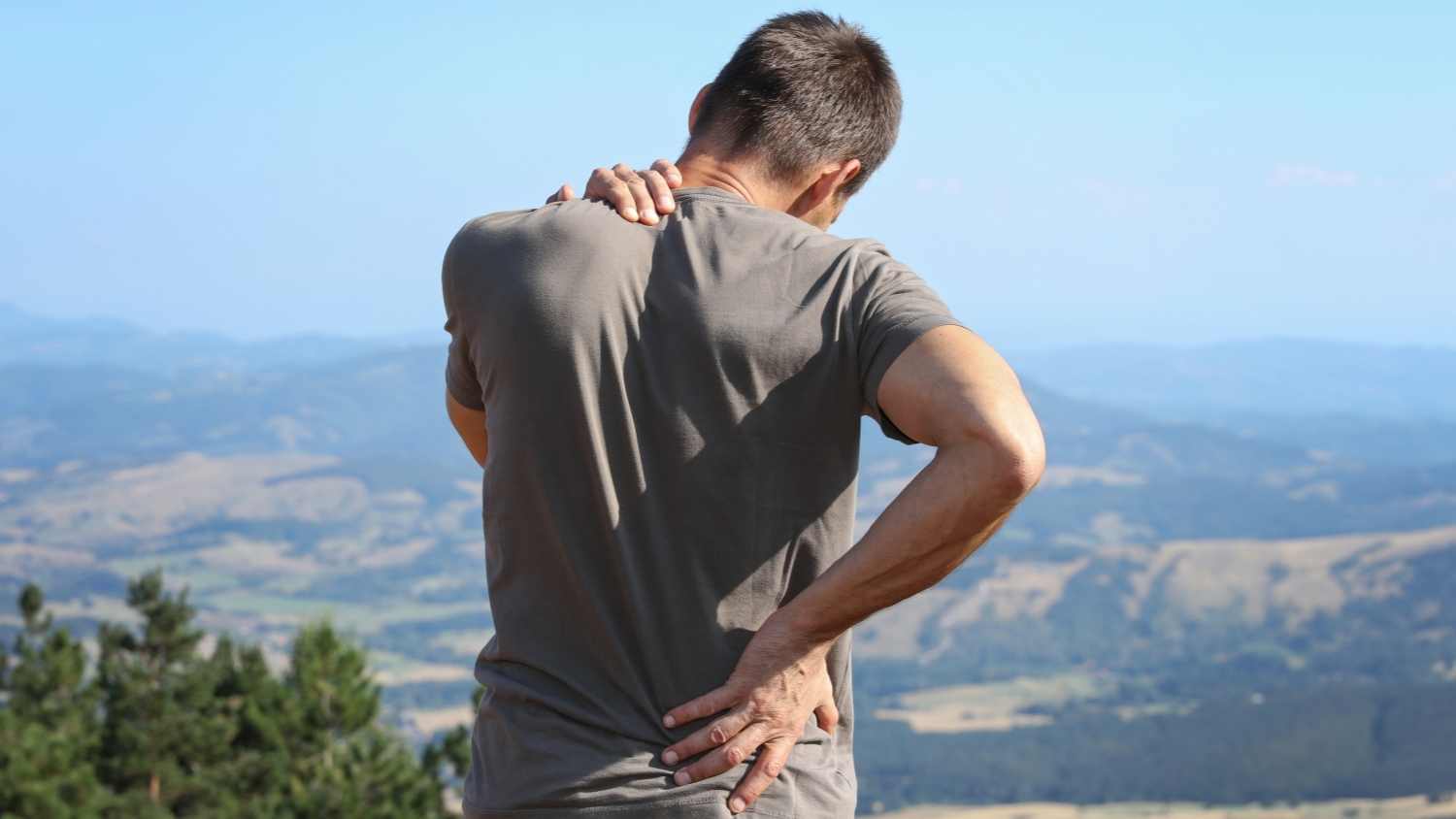
Thru-hiking is an intense physical undertaking that, over time, can cause significant inflammation in the body. This physiological process is called exercise-induced inflammation and is a normal response to the muscle damage caused by high-intensity physical activity. Unfortunately, the traditional thru-hiker diet can worsen exercise-induced inflammation. With proper rest, recovery, and dietary changes, this inflammatory response will be used in a positive way to regenerate muscle tissue.
When inflammation becomes chronic, it can affect the entire body and cause fatigue, muscle damage, soreness, and decreased recovery capacity. Avoiding exercise-induced inflammation while thru-hiking may not be possible, but the good news is that your diet can play a big part in reducing (or increasing) this chronic inflammation.

Exercised-Induced Inflammation and the Traditional Thru-Hiker Diet
Honeybuns, ramen, and candy bars, oh my!

These foods are delicious, cheap, and easy to prepare, so it makes sense that many thru-hikers rely on them for sustenance. While all foods can fit into a healthy diet, it’s important to understand how they may help (or hinder) performance and recovery.
Research shows that the standard American diet, high in saturated fat and added sugar and low in fruits and vegetables, is associated with higher markers of acute and chronic inflammation in the body. Unfortunately, many thru-hikers forgo fruits and vegetables and eat more added sugar and saturated fat than in their daily lives.
Pro-inflammatory eating patterns, such as the traditional thru-hiker diet, have been shown to have detrimental effects on exercise performance and recovery. Over time, the decreased recovery capacity, fatigue, and muscle soreness caused by prolonged inflammation can seriously affect your hiking!
Anti-inflammatory Diets & Performance
On the flip side…
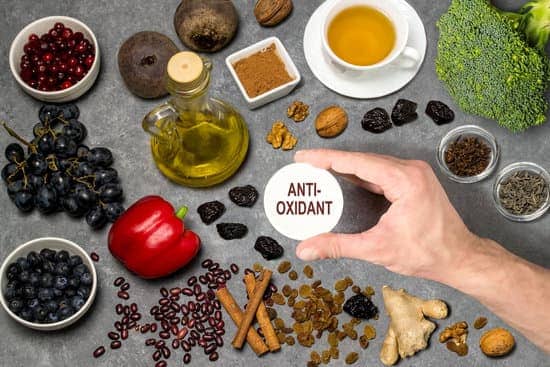
Diets rich in antioxidants and heart-healthy fats (unsaturated fats, especially omega-3 fats) have been shown to reduce exercise-induced inflammation.
Antioxidants are found in foods such as berries, leafy greens, and beans. Heart-healthy fats can be found in nuts, seeds, fatty fish, and olive oil.
By including more of these powerful foods, an athlete can lower long-term exercise-induced inflammation. This can reduce muscle soreness, increase muscle growth, and decrease recovery time. These benefits can be incredibly helpful for day and thru-hikers alike!
What does this mean for you and your thru-hiker diet?
You can impact your muscle recovery AND long-term health by creating an anti-inflammatory eating pattern on trail. It may seem daunting to increase antioxidants and healthy fats in your diet while also reducing cost, weight, and preparation time.
Thankfully, you can make many simple dietary changes to improve your diet and reduce exercise-induced inflammation.
Tips for Following an Anti-Inflammatory Diet on the Trail
- Add chia or ground flax seeds to your morning oatmeal for healthy fats.
- Use olive oil instead of coconut oil in your recipes.
- Focus on dried fruit (with more antioxidants per gram than its fresh counterpart!)
- Swap milk chocolate or candy bars for dark chocolate.
- Incorporate fruits with antioxidants (such as blueberries) into your breakfast.
- Prepare fruit and vegetable-rich recipes for lunch or dinner.
- Get some easy liquid nutrition by using meal replacement drinks.
- Eat fresh fruits and vegetables on town days whenever possible.
- If you’re eating meat, focus on tuna or salmon instead of pepperoni and sausage.
Ready to take your hiker diet to the next level?
Give this Backcountry Foodie meal replacement recipe a try during your next adventure.
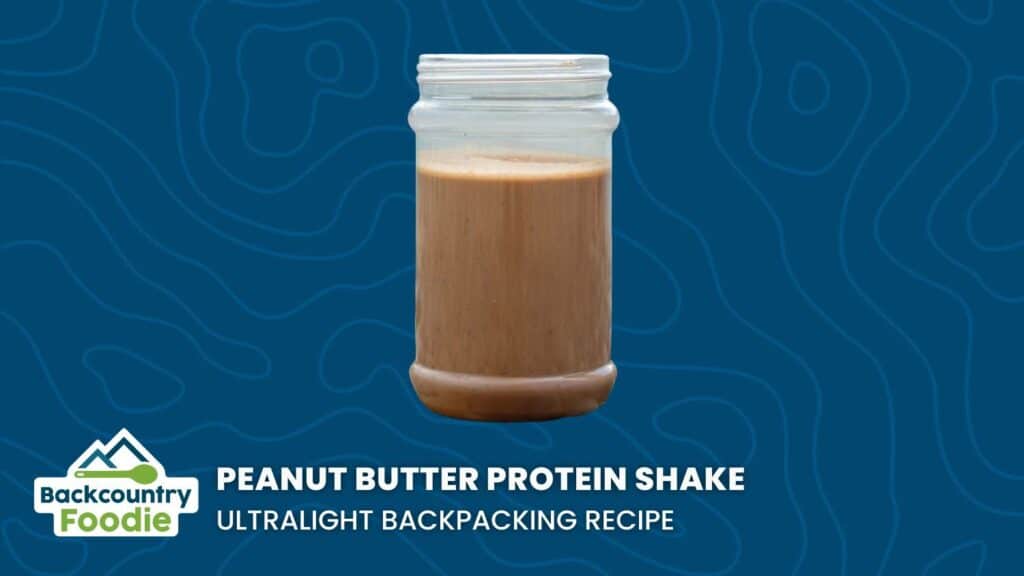
READY TO SEE MORE ULTRALIGHT BACKPACKING RECIPES LIKE THIS ONE?
Backcountry Foodie is your go-to resource for over 200 backpacking dietitian-created recipes and a one-of-a-kind automated meal planning tool. The meal planner even creates itemized shopping lists for you! Meal prep has never been easier.

Are you preparing for a thru-hike and feeling completely overwhelmed by the resupply process?

Backcountry Foodie offers a Resupply Coordination Service that can be tailored to your specific needs. Let Aaron do all of the hard work for you!
Hire Aaron to be your…
✔️ Personal Shopper
✔️ Personal Chef
✔️ Resupply Box Packer
✔️ Shipment Coordinator
✔️ Personal Dietitian
DISCLOSURE: Some of the links on this page are affiliate links, which means we may receive a modest commission if purchases are made through those links. This adds no cost to our readers and helps us keep our site running. Our reputation is our most important asset, so we only include links for products we use ourselves.
Did you enjoy this post?
Consider sharing it with your fellow hikers.
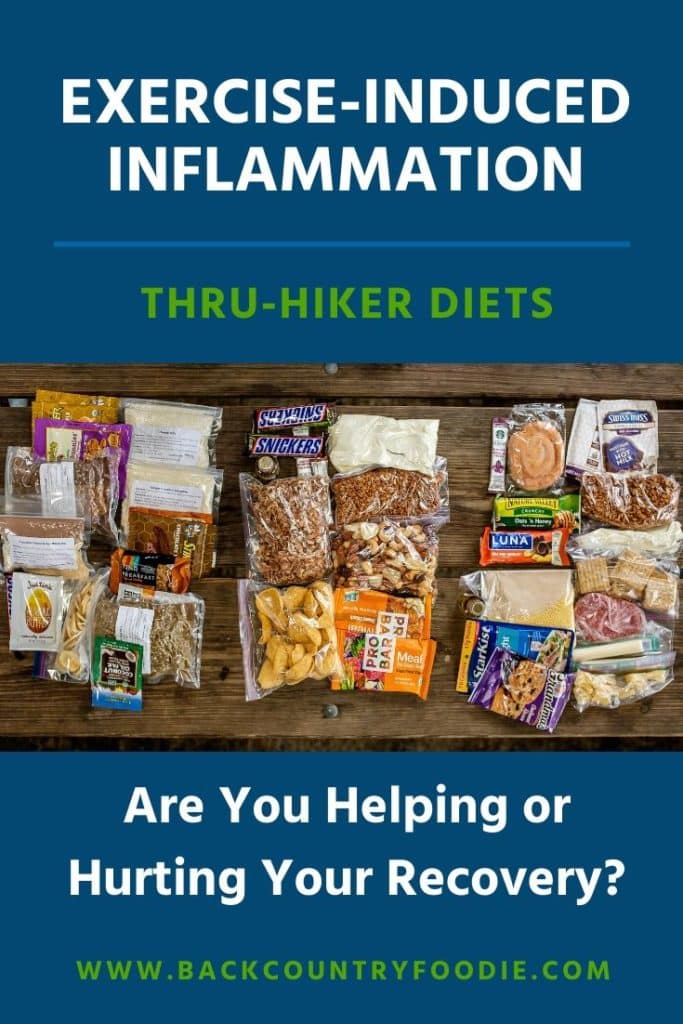
New to our blog?
Here are more posts that you might find interesting…
- Backpacking Nutrition: Using the Goldilocks Approach
- Essential Macronutrients for Muscle Recovery
- Foods to Improve Blood Flow
- A Look at Supplements, Meals, and Snacks for Muscle Recovery
- Backpacking Meal Plans: Not all are created equal
- Should Backpackers Be Wary of Ramen Noodles?
- The Ugly Truth About Pop-Tarts!
ABOUT THE AUTHORS:

Kellan Morgan, RD, is a former dietetic intern mentored by Aaron Owens Mayhew, MS, RDN, CD. She is a recent graduate of the Montana State Dietetic Internship in Bozeman, MT, with an undergraduate degree in dietetics from the University of Massachussetts, Amherst. She hopes to create a career focused on non-diet disease management and eating disorder recovery using a Health At Every Size approach. Kellan enjoys rock climbing, backpacking, and trail running when she’s not studying or talking about nutrition.
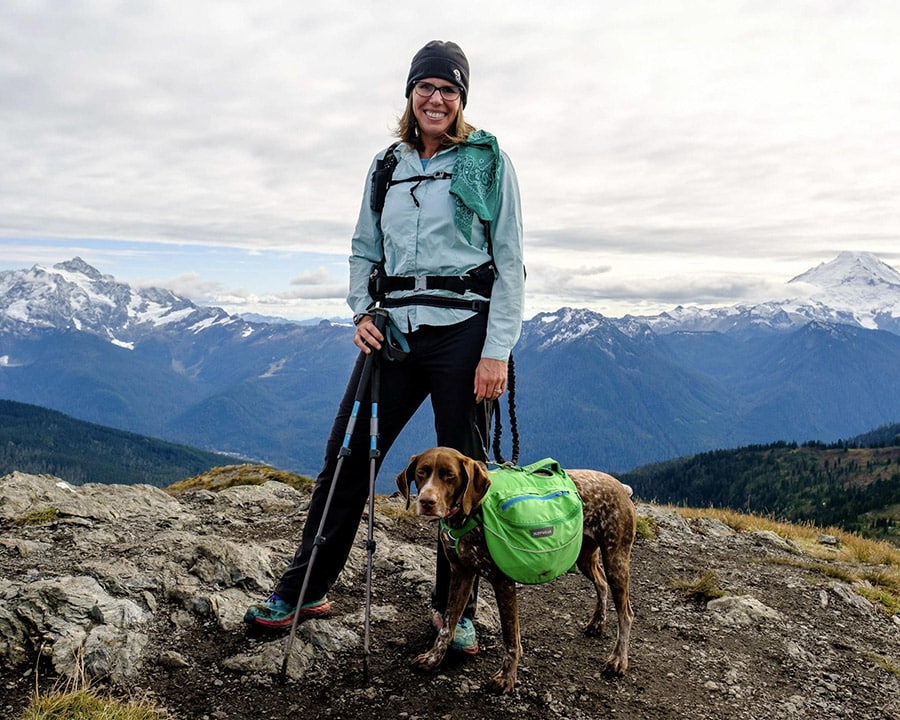
Aaron Owens Mayhew, MS, RDN, CD, is a registered dietitian and ultralight long-distance backpacker with over 20 years of nutrition and backpacking experience. She’s also the founder and owner of Backcountry Foodie, an online ultralight recipes and meal planning platform for backpackers. She also enjoys teaching hikers about backpacking nutrition via virtual masterclasses, YouTube videos, and podcast episodes. You can follow Aaron’s adventures in the kitchen and the backcountry via Instagram and Facebook.
References:
- Chait, Alan, et al. “Saturated Fatty Acids and Inflammation: Who Pays the Toll?” Arteriosclerosis, Thrombosis, and Vascular Biology, 1 Apr. 2010
- Nieman, David C, et al. “Influence of a Polyphenol-Enriched Protein Powder on Exercise-Induced Inflammation and Oxidative Stress in Athletes: a Randomized Trial Using a Metabolomics Approach.” PloS One, Public Library of Science, 15 Aug. 2013
- Spano, Marie. “Postexercise Recovery – Proper Nutrition Is Key to Refuel, Rehydrate, and Rebuild After Strenuous Workouts.” Today’s Dietitian, Nov. 2013
- Totsch, S K. “Effects of a Standard American Diet and an Anti-Inflammatory Diet on Male and Female Mice.” National Library of Medicine, 22 Aug. 2018
- Wehrmeinster, A A. “Antioxidant Content of Fresh, Frozen, Canned, and Dried Blueberries.” Journal of the Academy of Nutrition and Dietetics, Aug. 2002

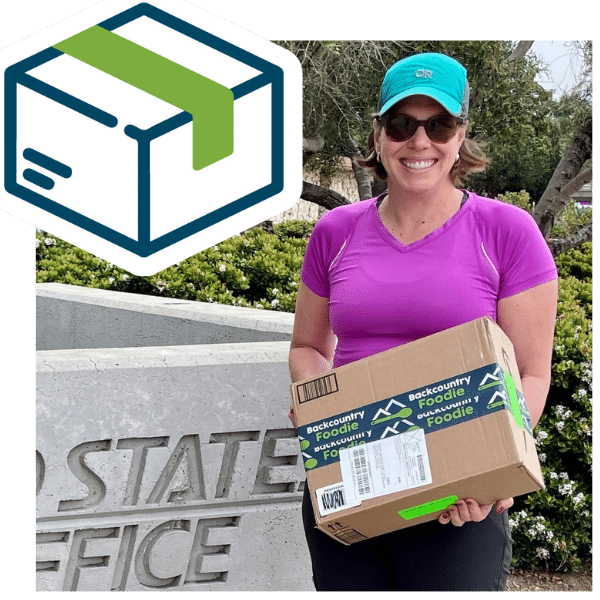
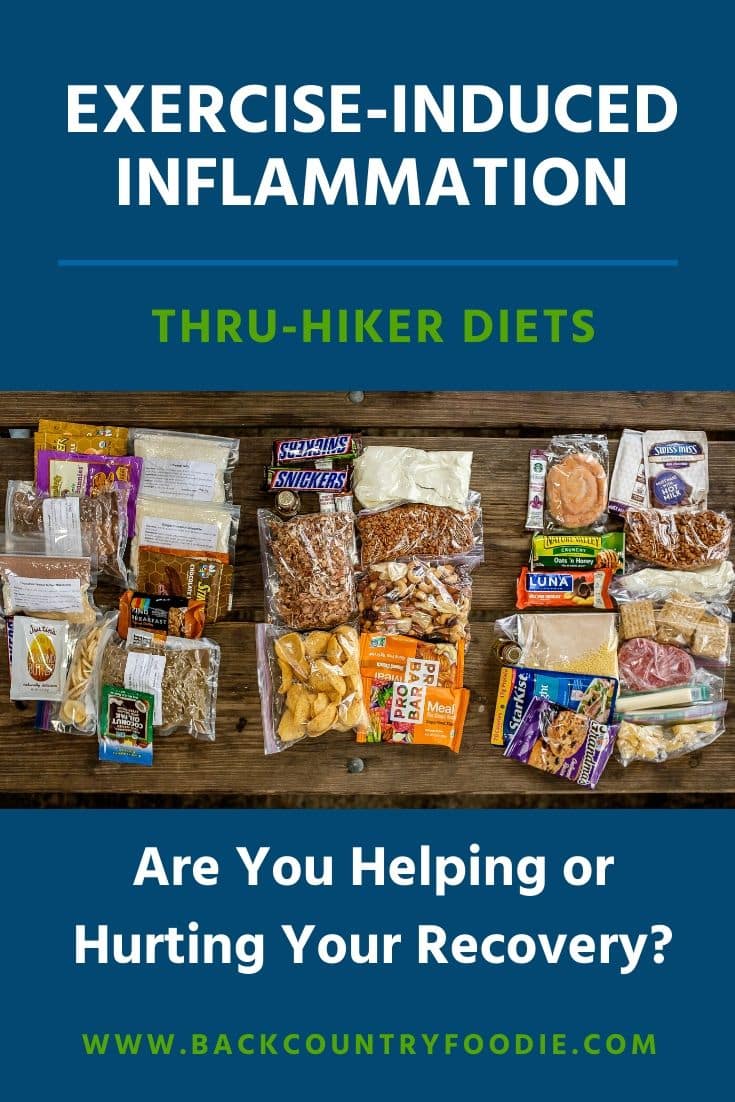
7 Comments
Hiking can help in your fat-burning process; you need to keep precautions regarding what you are eating. Hiking is a high-intensity activity, and if you cannot do it, swimming can be a great alternative.
great informative blog for adventure lovers
Wondering why you recommend olive oil replacing coconut oil?
As a “seasoned” backpacker that now has over 15,000 miles under my belt, inflammation is a serious consideration. This is a great article with good common sense, easy to digest, information. Thanks!
Ellie (averagehiker.com)
Agreed! It’s can really affect performance and recovery.
Glad somebody is trying to change the perspective on hiker food, hiking could be a tough physical activity, specially a thru hike, and nutrition needs to be considered and optimized for improved performance, recovery and injury prevention. Thanks for your work and contribution.
Once again, you presented easy to understand information. Many of your recipes fit in nicely with my whole food plant based lifestyle. Thanks!